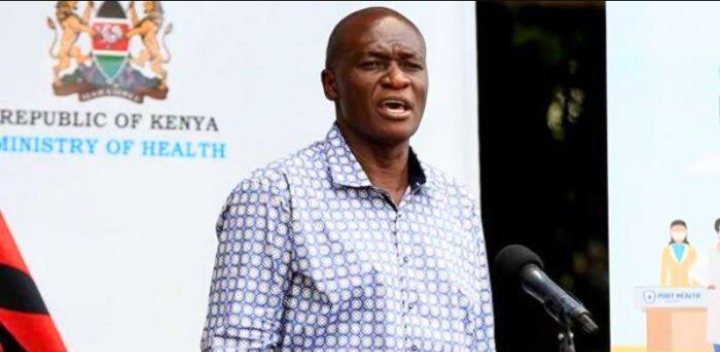Ministry of Health recently confirmed that two children have died due to adverse reactions to the polio vaccine following a nationwide immunization campaign.
This tragic news comes amid Kenya’s efforts to curb the spread of a polio outbreak identified in various regions, with a particular focus on high-risk areas.
While the deaths have drawn public attention and raised concerns, health officials emphasize that investigations are underway to understand the cause and mitigate future risks.
The vaccination campaign, which began in early October, was launched in response to confirmed polio cases, notably in Kakuma Refugee Camp in Turkana and Nairobi’s Kamukunji Sub-County.
Polio, a highly contagious viral disease that can lead to paralysis or death, poses a serious threat, especially to young children.
The Ministry’s campaign aimed to immunize approximately 3.8 million children under the age of five across nine counties, including Nairobi, Kiambu, Machakos, and West Pokot.
These areas were prioritized due to low immunity levels among children, which makes them especially vulnerable to outbreaks.
In total, 23 adverse cases linked to the vaccine have been reported since the campaign’s rollout. Of these, seven cases were classified as severe, including the two fatalities, while the other 16 cases involved mild reactions.
The Ministry is currently investigating all reported cases to determine their connection to the vaccine and identify any potential risk factors.
Dr. Patrick Amoth, the Ministry of Health’s Acting Director-General, acknowledged the concerns surrounding the reported deaths but stressed the importance of focusing on facts and understanding the broader context of the vaccination program.
The Ministry is also urging the public to refrain from spreading unverified information on social media, as rumors about vaccine safety could undermine the success of future vaccination drives.
Misinformation can create distrust in health initiatives, particularly in communities where confidence in government health programs may already be fragile. In recent years, vaccine hesitancy, fueled by misinformation, has complicated public health efforts, sometimes leading to outbreaks of preventable diseases.
Health officials warn that such hesitancy could jeopardize Kenya’s goals of eradicating polio and maintaining high vaccination coverage across the country.
To address concerns and ensure public transparency, the Ministry has pledged to provide regular updates as their investigation progresses.
Health officials are working closely with international health organizations, including the World Health Organization (WHO) and the United Nations Children’s Fund (UNICEF), to uphold global safety standards for vaccines and mitigate any risks.
These agencies play a crucial role in supporting countries like Kenya with both resources and expertise, helping to address adverse effects and ensure that vaccines meet stringent safety requirements.
The Ministry of Health has also taken proactive steps to engage local communities, working with healthcare providers and community leaders to reassure parents of the vaccine’s benefits and safety.
While no vaccine is without risk, health experts argue that the benefits of polio immunization far outweigh the potential adverse effects, especially in areas with documented polio cases.
Dr. Amoth explained that vaccine reactions are closely monitored, and safety protocols are in place to address any incidents swiftly.
He emphasized that vaccination remains the most effective way to protect children from polio, which can have devastating lifelong impacts on those who contract it.
Kenya’s polio vaccination drive forms a critical part of the nation’s broader public health strategy.
Like many African countries, Kenya has made significant strides in fighting polio, but recent cases have highlighted the need for sustained efforts to prevent a resurgence.
The country was declared polio-free in 2018, but recent cases, likely due to cross-border movements and other factors, underscore the importance of continued vigilance.
The Ministry aims to maintain high vaccination coverage to prevent future outbreaks and protect young children who are most at risk.
Health authorities remain committed to improving public awareness about vaccine safety and addressing the questions raised by recent events.
The Ministry encourages anyone with concerns to seek accurate information from official health resources, such as local health centers and government health websites, rather than relying on unofficial or speculative information shared on social media.
Public trust is seen as essential to the success of vaccination programs, and the Ministry’s efforts aim to preserve this trust while safeguarding public health.
While the recent deaths have raised legitimate concerns, Kenya’s health officials stress that the polio vaccination campaign remains critical for preventing outbreaks.
By working transparently and addressing safety issues, the Ministry hopes to reinforce public confidence in vaccination, ultimately contributing to Kenya’s goal of a polio-free future.





















Add Comment